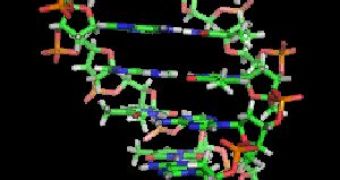Molecular biologists have known for a long time that the DDK (Ddf4-dependent protein kinase) is one of the most important proteins in the human body, because it plays an important role in DNA replication. This is the process that allows us to multiply and evolve, and also to produce new cells each day. However, the extent of that protein's involvement in DNA replication was not known to the fullest extent, so researchers have no way of telling what exactly DDK does. Now, a team of experts from the Cold Spring Harbor Laboratory (CSHL) has managed to crack the riddle, PhysOrg reports.
What DDK does is act like an enzyme, and force phosphate molecules to attach to various proteins, in effect modifying their activities. This means that, without it, those proteins would stick to performing a single task all the time, which would have disastrous consequences. Even in the most basic bacteria, some proteins or enzymes perform two or more functions, depending on how they are regulated. DDK exerts most of its action on a protein called Mcm4, during a process known as phosphorylation. The Mcm4 is directly responsible for preventing the unwinding of the DNA double helix. Basically, it acts like a built-in brake in the replication process.
“As DDK is often deregulated in human cancers, this new understanding of its role in DNA replication may help shape the development of new cancer therapies. Indeed recent studies have identified DDK inhibitors and they are now in clinical trials,” expert Bruce Stillman, PhD, the president of the CSHL, says. He is also the coauthor of a new study detailing the findings, published in the January 7 issue of the esteemed journal Nature. Other coauthors include his colleague, Yi-Jun Sheu, PhD.
“Although this is the only essential role for DDK under normal conditions, we have found that DDK takes on another task when the cell suffers DNA damage,” Dr. Stillman explains. According to the team, in these instances, DDK is directly responsible for activating a checkpoint known as the S-phase. This mechanism then steps in, and interrupts the DNA copying process. Afterwards, it immediately begins to promote DNA repair, in a bid to minimize the possibility that errors are copied between strands. “This discovery of these distinct functions of DDK represents a key piece of the puzzle of how the initiation of DNA replication is coordinated and controlled by kinase proteins,” Stillman concludes.

 14 DAY TRIAL //
14 DAY TRIAL //